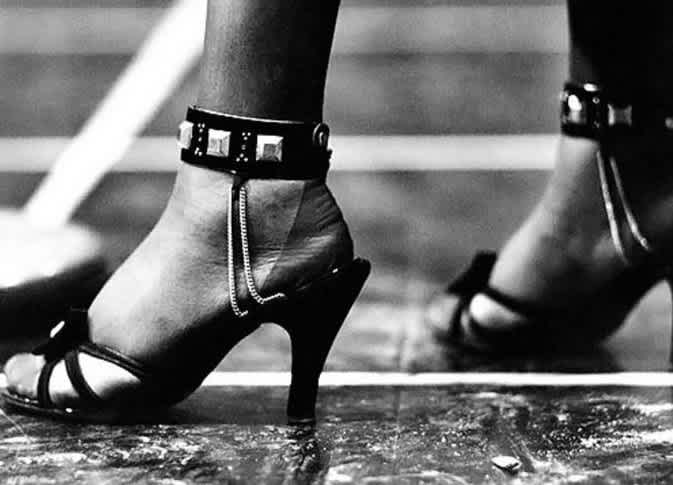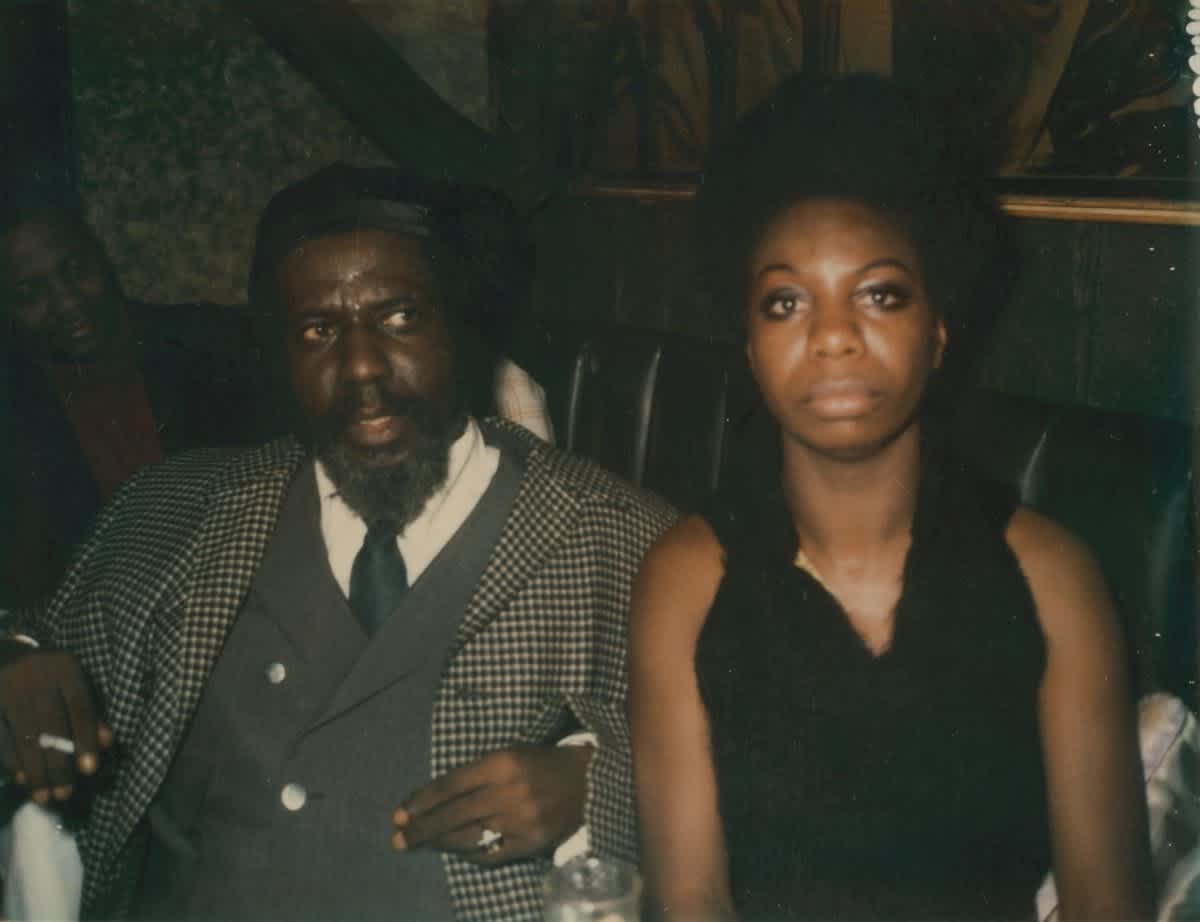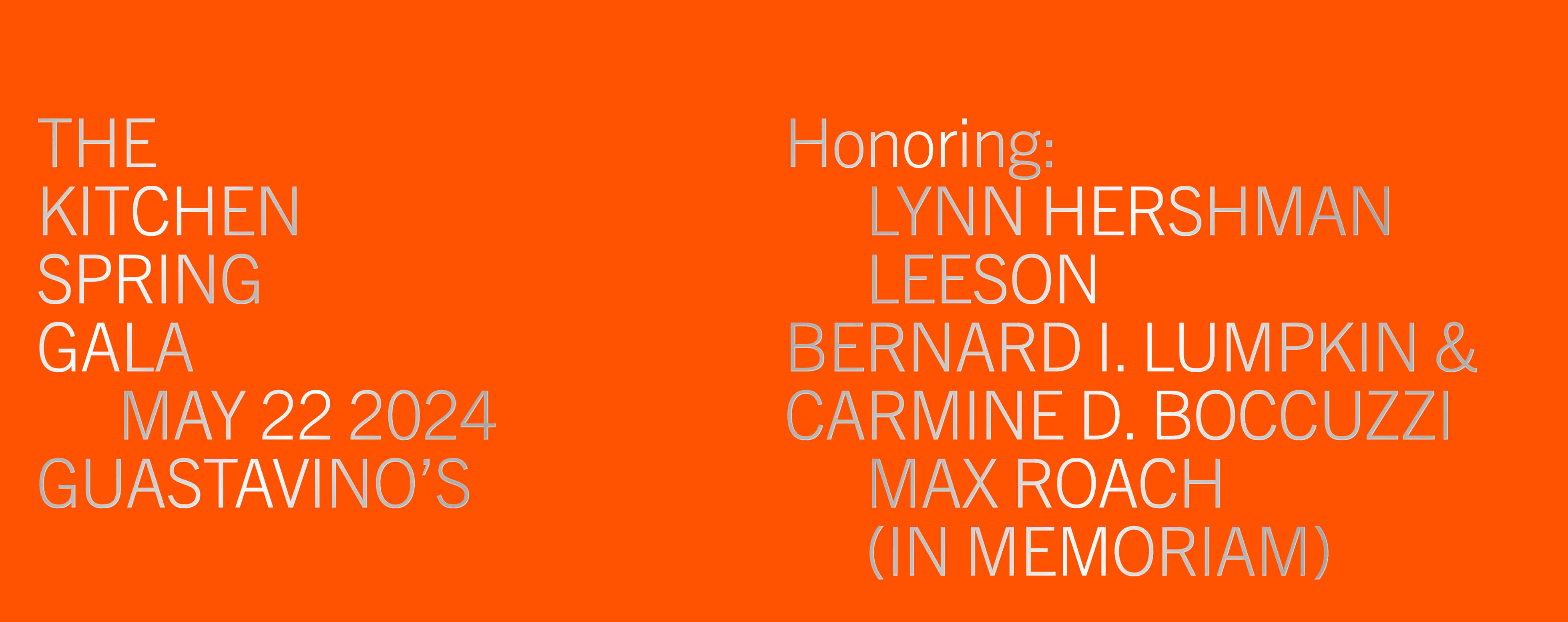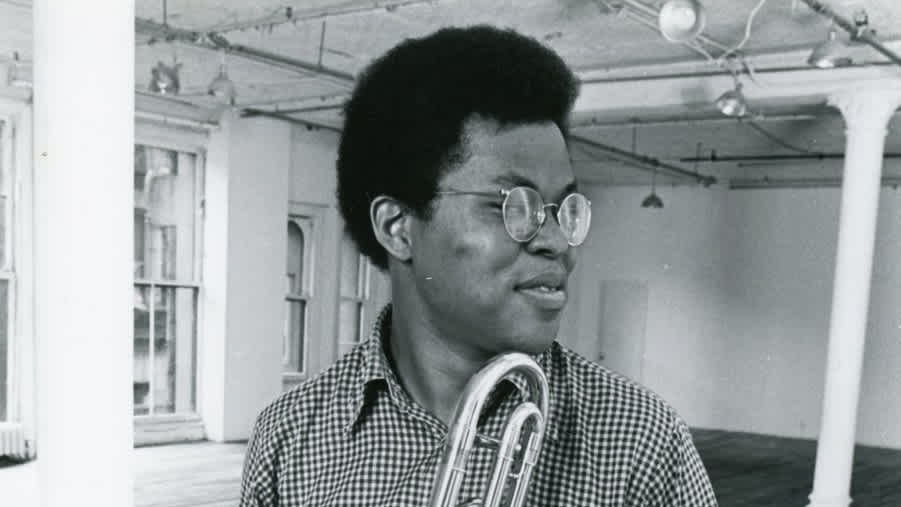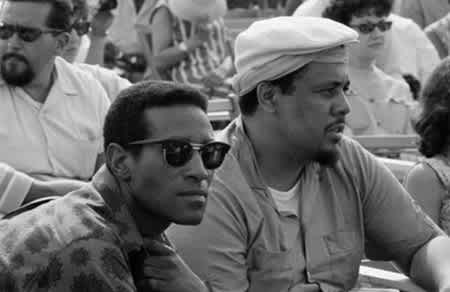
On View: April 24-April 25, 2024
The Kitchen at Westbeth (163B Bank Street, 4th Floor Loft)
Time:
7pm (Doors and exhibition on view 6pm, program begins 7pm)
In conjunction with Harmony Holiday: BLACK BACKSTAGE, Holiday, Ben Ratliff, Raoul Roach and Melanie Charles reflect on the framework of the “black backstage” across generations as a reimagining of the groundbreaking 1964 panel discussion in Playboy Magazine, “The Playboy Panel: Jazz – Today and Tomorrow,” in its then annual “Jazz and Hi-Fi Issue.”
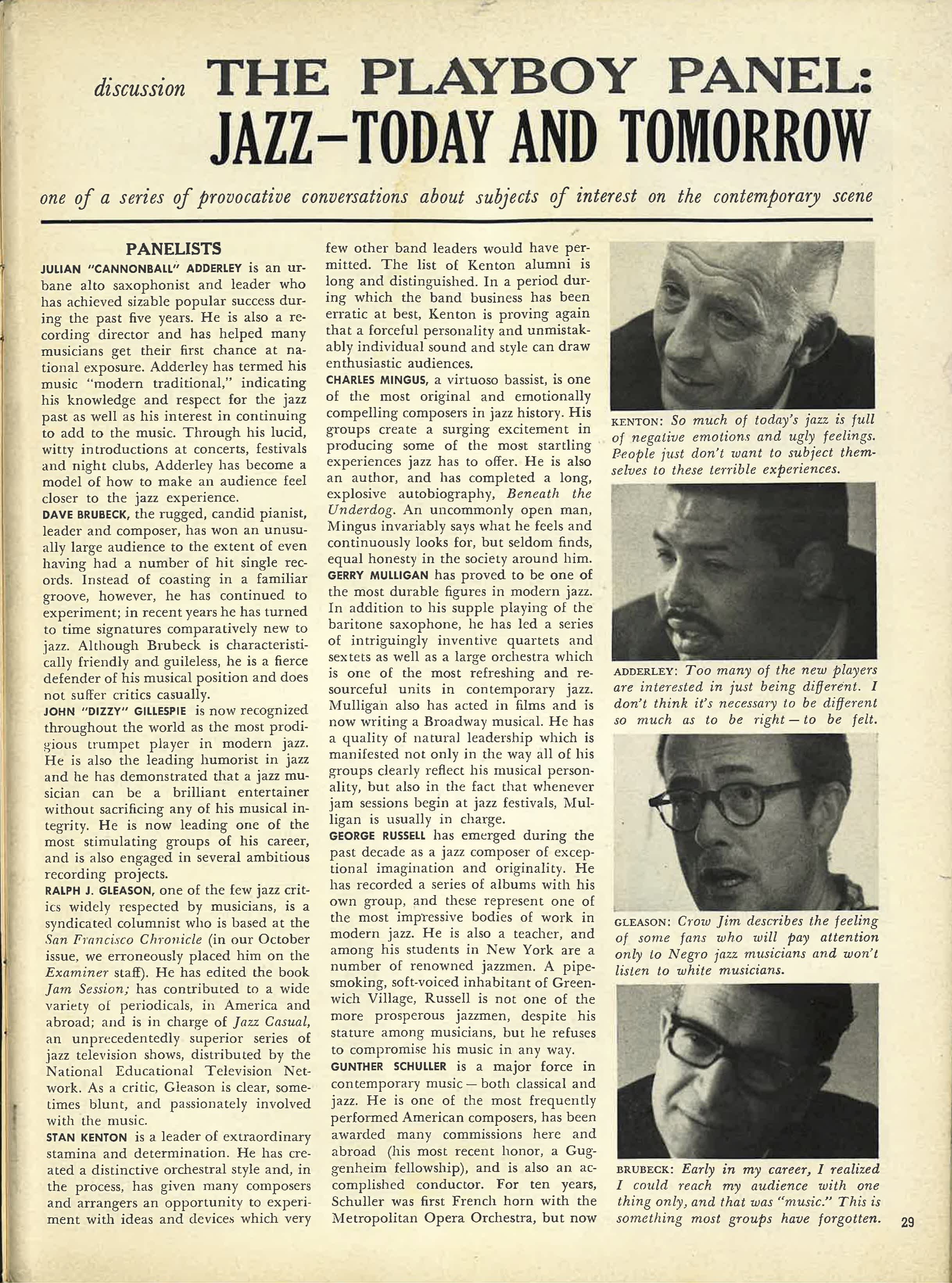
The roundtable brought together Charles Mingus, Dizzy Gillespie, George Russell, Ralph Gleason, Stan Kenton, and other significant contributors to the tradition of jazz to reflect on the future of the genre at that moment, asking questions like, “How does an expanding and ever more technically proficient musician pool grapple with unfavorable economics and insufficient exposure?” and “Does the term “jazz” even apply to the many styles that it is used to describe?”
Holiday’s newly envisioned conversation at The Kitchen expands the voices and visions of focus on music—both how it is recorded (in the “studio” or in the archive) or presented and performed live—and what the state of the music and entertainment industries today mean for the present and future of Black music, improvised or otherwise.
BIOS
Harmony Holiday is a writer, dancer, and experimental filmmaker whose work surveys music, ancestry, death and rebirth, and celebrity. She is the author of 5 collections of poetry including MAAFA (2022), and also curates an archive of griot poetics and a related performance and conversation series at LA’s 2220Arts. At the core of her practice is a pursuit of visual and literary vocabularies that might best express the melancholic hope endemic to Black American social life. As Holiday navigates the depths of Black remembrance and loss, she sets her sights on the relationship between “the new”, “the archival,” and the spaces between them that defy linear time. She treats these energies as collectively improvising ensembles in which prose and poetry sit by turns comfortable and chaotic, next to images cribbed from Black artistic and private life. Most recently she has received awards from the Silver’s and Rabkin foundations, and is completing a memoir Love is War for Miles, a biography of Abbey Lincoln, and collection of poems.
Ben Ratliff is the author of books including Every Song Ever: Twenty Ways to Listen in an Age of Musical Plenty (2016), Coltrane: The Story of a Sound (2007), and the forthcoming Run the Song: Writing About Running About Listening. He was a jazz and pop critic at the New York Times from 1996 to 2016, and has written for other publications including the New York Review of Books, the Washington Post, Pitchfork, 4Columns, and Presence. He teaches cultural criticism at New York University's Gallatin School of Individualized Study.
Raoul Roach has forged a distinguished career in contemporary music as a prolific and respected upper echelon record executive that spanned over four decades. He has built a sterling reputation for mining gold and platinum records for a bevy of major recording stars and record labels including Quincy Jones, Anita Baker, the late Michael Jackson and Teddy Pendergrass, Grand master Flash, Pete Rock, C.L. Smooth, Tevin Campbell, Elektra Records, Qwest Records, and MCA Records, to name just a few. Raoul's passion and ears for music are deeply rooted in his family's lineage and late father, the iconic and internationally revered jazz musician Max Roach. He was born and raised in New York City, and by age 15, was cutting his teeth working for his legendary dad, first as an office assistant, then a roadie, and eventually as his Road Manager and producer of several of his concerts. Roach was also firmly entrenched in activism, civil rights and the social justice movement of the sixties and seventies, so Raoul was exposed to and mentored by some of the most pivotal Black figures of the period including Maya Angelo, Sonia Sanchez, Amiri Baraka and Alvin Ailey. Currently semi-retired, he is working with family and other collaborators of his late father, to coordinate #MaxRoach100, an 18 month international centennial celebration of his father's music and life. #MaxRoach100! will include films, documentaries, social media, concerts, exhibitions and new and previously released recordings.
Brooklyn born and raised, Melanie Charles, has made a name for herself through dynamic engagements with jazz, soul, and R&B. Her bold genre-bending style has been embraced by a range of artists including Wynton Marsalis, SZA, Mach-Hommy, Gorillaz, and The Roots. In 2021, she appeared on NPR’s Tiny Desk and stunned with her eclectic style. Through it all, she has remained committed to making music that pushes listeners to consider new possibilities—both sonically and politically. “Make Jazz Trill Again,” a project that she launched in 2016, demonstrates her allegiance to everyday people, especially the youth and is focused on taking jazz from the museum to the streets. “I love jazz, I really fell in love with it deeply. But I was interested in young people interacting with it,” Charles says. The album Y’all Don’t (Really) Care About Black Women is reflective of Charles’ tremendous versatility and imagination as an artist but of also her deep care for community.
FUNDING SUPPORT & CREDITS
The Kitchen’s programs are made possible in part with support from The Kitchen’s Board of Directors, The Kitchen Leadership Fund, and the Director’s Council, as well as through generous support from The Amphion Foundation, Inc., Bloomberg Philanthropies, The Aaron Copland Fund for. Music, The Cowles Charitable Trust, Joseph and Joan Cullman Foundation for the Arts, Inc., Howard Gilman Foundation, The Harkness Foundation for Dance, Marta Heflin Foundation, Lambent Foundation Fund, a fund of Tides Foundation, The Andrew W. Mellon Foundation, Mertz Gilmore Foundation, Open Society Foundation, The Jerome Robbins Foundation, Ruth Foundation For The Arts, The Fan Fox and Leslie R. Samuels Foundation, Simons Foundation, and Teiger Foundation; The Andy Warhol Foundation for the Visual Arts and in part by public funds from New York City Department of Cultural Affairs in partnership with the City Council and New York State Council on the Arts with the support of the Office of the Governor and the New York State Legislature.
